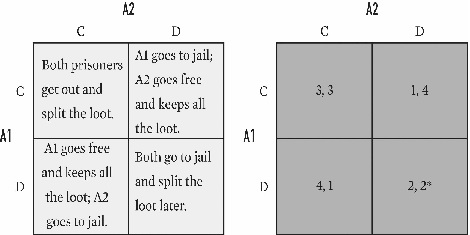Exam 3: Understanding Interests, interactions, and Institutions
All of the following statements about power are true EXCEPT:
D
Which entity is the most prominent actor in international relations?
A
How does bargaining differ from cooperation?
Bargaining and cooperation are two distinct processes that are often used to resolve conflicts, negotiate terms, or achieve goals among individuals or groups. While they may seem similar in that they both involve interaction and communication between parties, they differ in their objectives, approaches, and outcomes.
Bargaining:
- Bargaining is a process of negotiation in which two or more parties with differing interests seek to reach an agreement by making concessions or demands. It often involves a give-and-take dynamic where each party gives up something in order to get something else in return.
- The primary goal of bargaining is to maximize one's own benefit within the negotiation. Each party enters the bargaining process with their own set of goals and seeks to achieve the best possible outcome for themselves.
- Bargaining can be competitive, with each side trying to gain more advantage over the other. It may involve strategies such as bluffing, withholding information, or applying pressure.
- The outcome of bargaining is often a compromise where neither party gets everything they want, but each receives something of value in exchange for concessions made.
- Examples of bargaining include labor negotiations, business deals, and diplomatic negotiations.
Cooperation:
- Cooperation, on the other hand, is a process where two or more parties work together towards a common goal or mutual benefit. It is characterized by a collaborative effort where the interests of all parties are considered and valued.
- The primary goal of cooperation is to achieve a result that is beneficial for all involved, rather than maximizing individual gain. The focus is on finding solutions that are agreeable and advantageous to everyone.
- Cooperation is based on trust, open communication, and the willingness to share resources and information. It requires a more integrative approach where parties look for ways to align their interests and create synergies.
- The outcome of cooperation is a joint effort that produces a result that would be difficult or impossible to achieve individually. It often leads to stronger relationships and partnerships because it is built on mutual respect and shared success.
- Examples of cooperation include team projects, community initiatives, and international collaborations on environmental issues.
In summary, while bargaining is a negotiation process aimed at reaching an agreement through concessions, often with a competitive edge, cooperation is a collaborative process aimed at achieving mutual benefits through shared efforts and trust. Both are important mechanisms for interaction, but they are applied in different contexts and with different intentions.
Explain how the number of actors,iteration,the importance of the future,and information contribute to successful cooperation.
Under what conditions are both hunters likely to cooperate in the Stag Hunt game?
For the game below,what is the equilibrium (or equilibria)for A1 and A2? 
What is the difference between a national interest and an interest of a politician acting as a head of state? Give an example of each to illustrate your point.
Which category of interest is usually considered the most basic,a prerequisite for other goals?
How might states use coercion,outside options,and agenda-setting to exercise power when bargaining with other actors?
Who can be considered an actor in international relations? Which actors are the most important for an analysis of world politics and why?
What do we mean when we refer to a "state" in world politics? Why must states have sovereignty? How has the notion of sovereignty changed over time?
In international relations,actors can be any of the following EXCEPT:
What was the logic behind the United States' claim that the United Nations Security Council would become irrelevant if it did not endorse regime change in Iraq?
Why did the United Nations Security Council NOT endorse the preventive war against Iraq in 2003?
Filters
- Essay(0)
- Multiple Choice(0)
- Short Answer(0)
- True False(0)
- Matching(0)